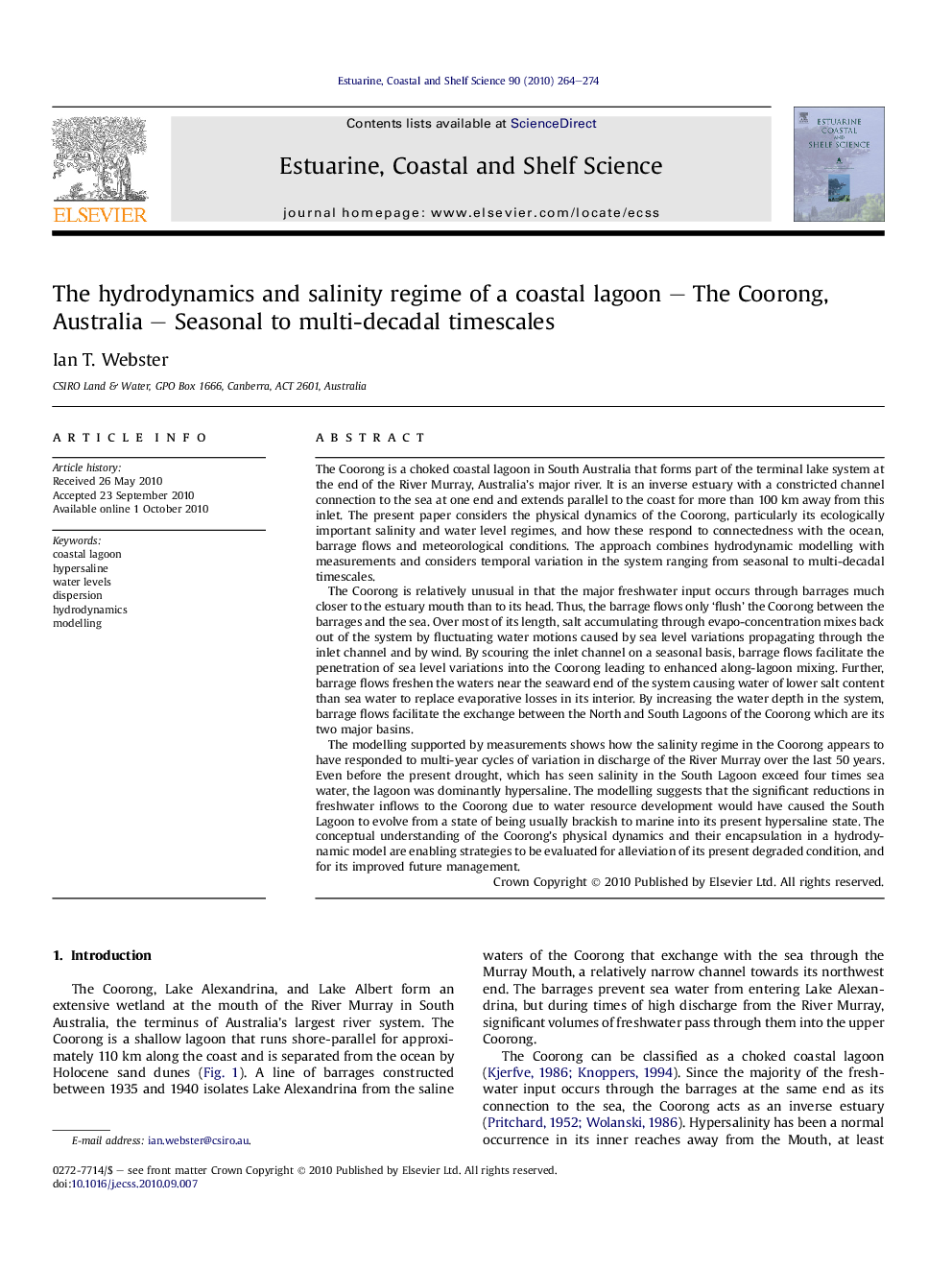| Article ID | Journal | Published Year | Pages | File Type |
|---|---|---|---|---|
| 4540652 | Estuarine, Coastal and Shelf Science | 2010 | 11 Pages |
The Coorong is a choked coastal lagoon in South Australia that forms part of the terminal lake system at the end of the River Murray, Australia’s major river. It is an inverse estuary with a constricted channel connection to the sea at one end and extends parallel to the coast for more than 100 km away from this inlet. The present paper considers the physical dynamics of the Coorong, particularly its ecologically important salinity and water level regimes, and how these respond to connectedness with the ocean, barrage flows and meteorological conditions. The approach combines hydrodynamic modelling with measurements and considers temporal variation in the system ranging from seasonal to multi-decadal timescales.The Coorong is relatively unusual in that the major freshwater input occurs through barrages much closer to the estuary mouth than to its head. Thus, the barrage flows only ‘flush’ the Coorong between the barrages and the sea. Over most of its length, salt accumulating through evapo-concentration mixes back out of the system by fluctuating water motions caused by sea level variations propagating through the inlet channel and by wind. By scouring the inlet channel on a seasonal basis, barrage flows facilitate the penetration of sea level variations into the Coorong leading to enhanced along-lagoon mixing. Further, barrage flows freshen the waters near the seaward end of the system causing water of lower salt content than sea water to replace evaporative losses in its interior. By increasing the water depth in the system, barrage flows facilitate the exchange between the North and South Lagoons of the Coorong which are its two major basins.The modelling supported by measurements shows how the salinity regime in the Coorong appears to have responded to multi-year cycles of variation in discharge of the River Murray over the last 50 years. Even before the present drought, which has seen salinity in the South Lagoon exceed four times sea water, the lagoon was dominantly hypersaline. The modelling suggests that the significant reductions in freshwater inflows to the Coorong due to water resource development would have caused the South Lagoon to evolve from a state of being usually brackish to marine into its present hypersaline state. The conceptual understanding of the Coorong’s physical dynamics and their encapsulation in a hydrodynamic model are enabling strategies to be evaluated for alleviation of its present degraded condition, and for its improved future management.
Research highlights► Over 50 years, salinity showed multi-year cycles due to variation in barrage flow ► Barrage flows do not mediate salinity by flushing as in most estuaries ► Barrage flows seasonally scour inlet channel and maintain its openness ► Sea level variations penetrating through inlet enhance salt mixing and reduce buildup ► With barrage flows evaporation is replaced with freshwater rather than marine water
